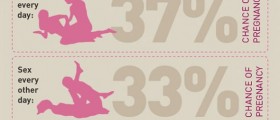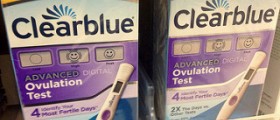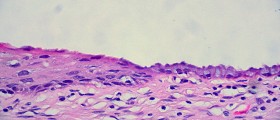
The average menstrual cycle lasts somewhere from 28 to 31 days, from the start of one period to the start of the next. Ovulation, the release of an egg and the woman's most fertile period, typically occurs somewhere in the middle of the cycle, at day 14 or so. But it is important to understand that every woman's cycles are different. Some women have long cycles, others have short cycles, and others again have irregular cycles that are unpredictable. What kind of cycle could cause you to become pregnant while you are still experiencing menstrual flow? One that is unusually short, with ovulation occurring just after the menstruation ends. Keep in mind that sperm can survive for up to five days in a woman's body, and it becomes clear that it might very well be possible for some women to conceive during their period.
Having said that, we have to add two warnings. First of all, having intercourse during your period is not your best bet at getting pregnant, and if you are trying to conceive it is helpful to get to know your cycle and make sure you know when you ovulate. You can do this with the help of an ovulation calendar, or by charting to conceive. Secondly, if you do not want to get pregnant, use a reliable contraception method, such as the birth control pill or condom to decrease your chances of conceiving. And remember, no birth control method is a 100 percent effective, except for being celibate. That will do the trick every time :).
- www.nhs.uk/common-health-questions/pregnancy/can-i-get-pregnant-just-after-my-period-has-finished/
- www.womenshealth.gov/pregnancy/you-get-pregnant/knowing-if-you-are-pregnant
- Photo courtesy of National Institute of Child Health and Human Development by Wikimedia Commons: en.wikipedia.org/wiki/Menstrual_cycle#/media/File:Lining_of_Uterine_Wall.jpg

















Your thoughts on this
Loading...